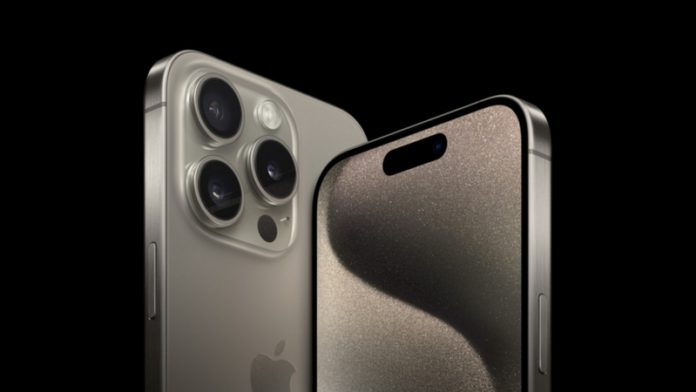
The US has filed a landmark lawsuit against Apple, accusing the tech giant of monopolising the smartphone market and crushing competition.
In the lawsuit, the justice department alleges the company abused its control of the iPhone app store to “lock in” customers and developers.
It accuses the firm of taking illegal steps to thwart apps seen as a threat and make rival products less appealing.
Apple has vowed to “vigorously” fight the lawsuit and denies the claims.
The sprawling complaint, filed at a federal court in New Jersey, marks one of the biggest challenges to date for Apple, which has been fending off mounting complaints about its practices in recent years.
It alleges that Apple used “a series of shapeshifting rules” and restricted access to its hardware and software, in a bid to boost its own profits while raising costs for customers and stifling innovation.
“Apple has maintained monopoly power in the smartphone market not simply by staying ahead of the competition on the merits but by violating federal anti-trust law,” Attorney General Merrick Garland said at a press conference announcing the suit.
“Customers should not have to pay higher prices because companies break the law.”
The complaint focuses on five areas where Apple allegedly abused its power.
For example, the US alleges that Apple used its app review process to thwart development of so-called super apps and streaming apps, because it was worried such apps would provide less incentive for customers to stick with iPhones.
It also says Apple has made it difficult to connect iPhones to smart watches made by rivals and blocked banks and other financial firms from accessing its tap-to-pay technology, allowing Apple to earn billions in fees from processing Apple Pay transactions.
The complaint also focuses on the way Apple treats messages sent from rival phones, distinguishing them with green bubbles and limiting videos and other features. It says Apple’s moves have created “social stigma” that has helped the tech giant maintain its grip on the market.
Apple said customers were loyal because they were happy and that under US law it was free to choose its business partners. It has pointed to privacy and security concerns to justify its rules.
The company said it would ask the court to dismiss the lawsuit, which it predicted would fail.
“We believe this lawsuit is wrong on the facts and the law, and we will vigorously defend against it,” the company said.
Proving that security and privacy concerns – not efforts to boost its own business – will be key if Apple hopes to fend off the case, said Bill Baer, a visiting fellow at Brookings who was an anti-trust official under the Obama administration.
“It’s a question of what the motivation is,” he said. “Anti-trust laws and the courts’ interpretation of them suggest that once you’re a monopolist, if you do engage in behaviours that have no legitimate business justification other than to limit competition and cement your monopoly, then that is problematic.”
It is the third legal action Apple has faced from the US government since 2009 and the first anti-trust challenge filed against the company under President Joe Biden’s administration.
If the government wins its case, it could force Apple to overhaul its current contracts and practices – or even lead to a break up of the company.
Shares in Apple fell more than 4% as investors digested the implications of the legal battle.
Any potential changes would take years to materialise as the case makes its way through the courts.
Vanderbilt University professor Rebecca Allensworth called the case “a blockbuster”, following other lawsuits the justice department has brought against the major tech giants.
She said at its core, it was about increasing functionality between smartphones and making the technology and software more accessible to consumers and other businesses.
“It’s not about breaking up Apple into small units or spinning off divisions,” she said.
Apple has faced a growing legal backlash over its iOS ecosystem and business practices.
It is engaged in a lengthy legal battle with Epic Games, which makes Fortnite.
Last month, it was fined €1.8bn (£1.5bn) by the EU for breaking competition laws over music streaming.
The firm had prevented streaming services from informing users of payment options outside the Apple app store, the European Commission said.
Competition commissioner Margrethe Vestager said Apple had abused its dominant position in the market for a decade, and ordered the tech giant to remove all of the restrictions. Apple said it would appeal against the decision.
Anat Alon-Beck, a business law professor at Case Western Reserve University in Ohio, said the justice department’s new lawsuit was “far more extensive” than its previous legal challenges in the EU.
“It’s not just about the 30% app store fee, but about the core unfair practices of Apple,” she said, adding that it was “about time” that the DOJ took action.
“Apple systematically excludes rivals from the Apple ecosystem. By doing that, Apple is hurting so many startup businesses, stakeholders, customers and, in my opinion, its shareholders,” she said.
According to the justice department, Apple’s share of the US smartphone market exceeds 70%, and its share of the broader smartphone market exceeds 65%.





